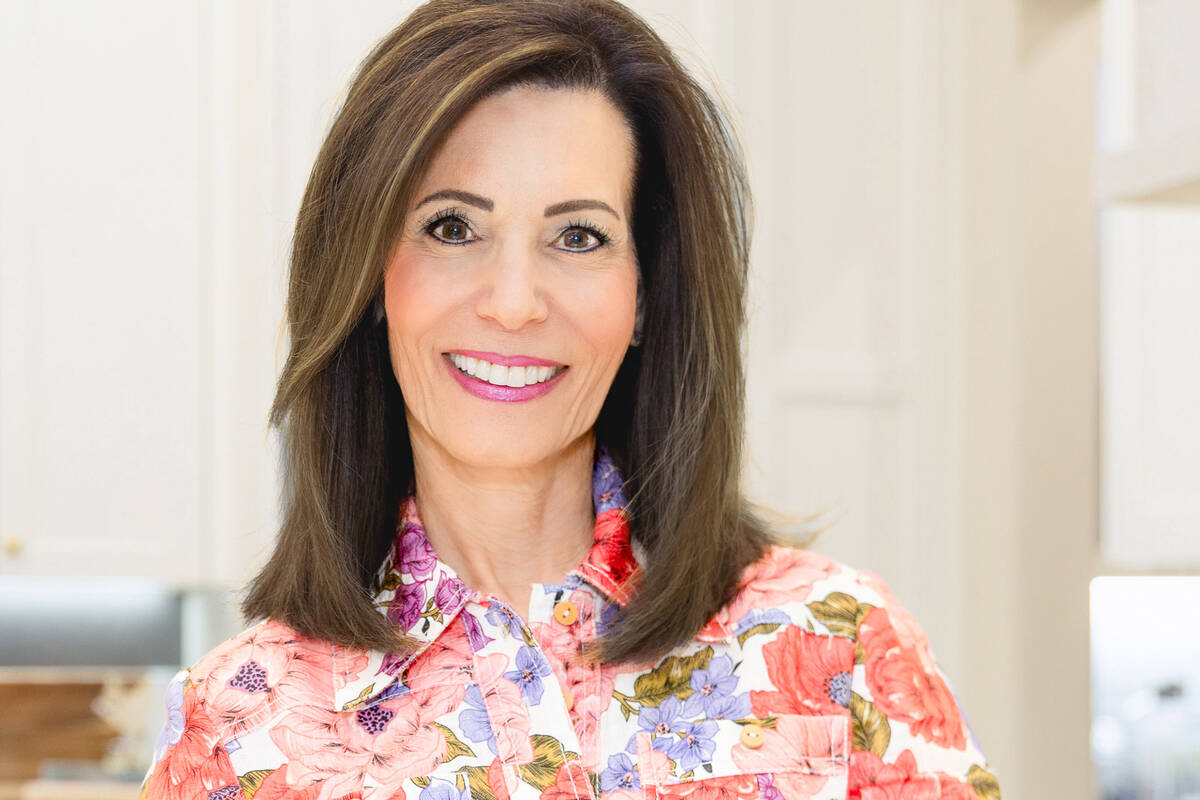Las Vegan wants to change America’s thinking about 50-plus era

When Marla Letizia went to her 51st high school class reunion in October 2022 (the 50th was called off amid the COVID pandemic), she saw “150 kids — I still call them kids — that were just vibrant and strong and warm and had gotten through insecurities in life,” she recalls.
Her classmates had “gained wisdom and humbling in their lives,” Letizia adds. “It was just invigorating. I was just so proud of who these people were.”
Then she returned home and happened upon a TV commercial for a Medicare Advantage plan, and she was shocked by how people 55 and older were portrayed.
In a singsongy voice-over, an announcer talked to adults as if they were children, the 71-year-old Letizia recalls.
The difference between the ad’s disrespectful, patronizing treatment of older Americans contrasted starkly with the group of classmates she had just left, and that made Letizia depressed and angry.
“I felt old and irrelevant, and I thought it wasn’t important what I thought anymore,” she says. “I got into a horrible depression.”
Then, Letizia, a longtime Las Vegas media professional, says she started blogging about it — a lot — and “people started chiming in.”
From that experience came Long-Life Era, an online community dedicated to raising awareness of ageism and encouraging older Americans to rethink and take control of their later years.
Toward that end, Letizia asks those 50 and older to foster a mindset to live to 100 and beyond and to consider what used to be the end stages of life as fertile ground for creating new opportunities.
Letizia, who will discuss the Long-Life Era at the March 2 Aging Wellness Expo at the South Point, recently talked with us about the online community that she started last March on Facebook.
For more information, visit LongLifeMindset.com or Facebook.com/groups/longlifeera.
Las Vegas Review-Journal: What is the Long-Life Era?
Marla Letizia: The Long-Life Era is simply a reframing of the words “senior citizen.” For me, those words make the hair at the back of my neck stand up, because they describe, in innuendo, a journey that ends at a dead end that is a stereotype and objectification of people who are above the age of 50 that is very boxed, and makes those at that age feel we need to get into the box as our only alternative. And then that box gets parked off to the side of life.
How — why — does this happen?
What happens is that the midlife crisis happens at 36 to 50, and it can take up to 10 years to get through that midlife crisis. You wake up at 60, and most people say, “What happened? I never did what I wanted to do, and I see messages on TV that I’m not important anymore … so I might as well just give up.” So, this is why, for me, the Long-Life Era is reframing how we are living our lives and that we have value.
You note an anti-aging bias in American society. What about other countries?
In Europe, South America, Cuba, even Asia and Communist China there is a reverence toward those who have lived a long life. There is wisdom that is respected and asked for … we don’t have that.
You also note that the Long-Life Era could be the longest stage of our life.
At age 50 you literally have the longest era of your life in front of you: 50 years or more.
You encourage, as part of this commitment, people to mind their physical, emotional and cognitive health.
For sure, because there are statistics that say … you can actually change (some imminent health deficits at age 70) and increase your health span and life span. It’s never too late.
You also ask people to adopt a “long-life mindset” of living to be 100.
When you change that mindset, things change. (Reading the promise) “Long-Life Mindset: I recognize living a healthy Long-Life to 100 years and beyond is entirely possible. I embrace becoming a centenarian is part art and part science. I believe from this point forward I am the artist and scientist of my own Long-Life destiny.”
You’re even aiming to increase the number of centenarians in the United States?
There are 89,000 centenarians. I want to add 20 percent of that. So, a goal of 120,000 centenarians to embrace the mindset. I feel if we can show 120,000 having embraced the (Long-Life Era) mindset, we are changing ageism in America.
By the way, the name of the community sounds a bit like Taylor Swift’s “Eras” theme.
(Laughs) It’s so funny. I went to her concert in early March and it was wonderful. But my husband and my girlfriend in New York were trying to figure out what to call this better than “senior citizen” or “golden years,” and as a joke we just said, “Let’s call it Long-Life Era,” and here we are.